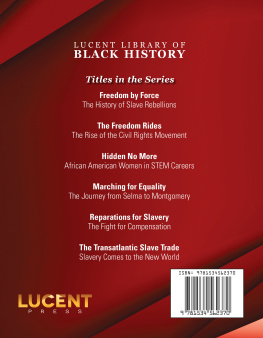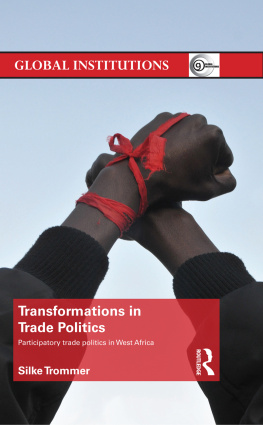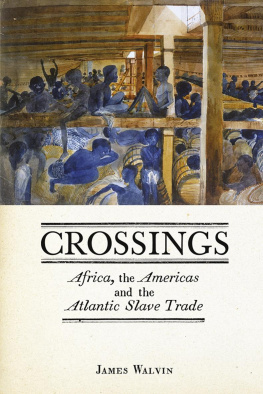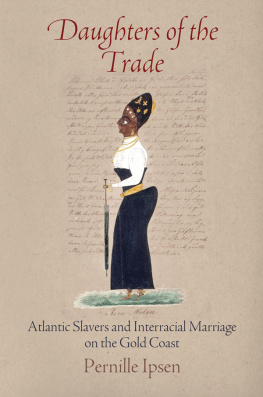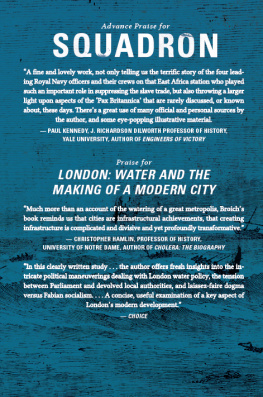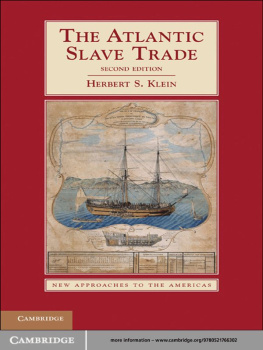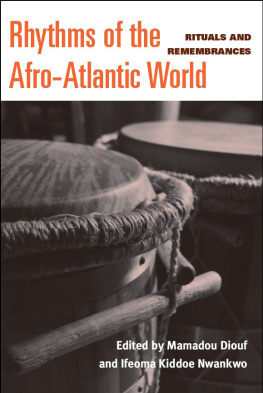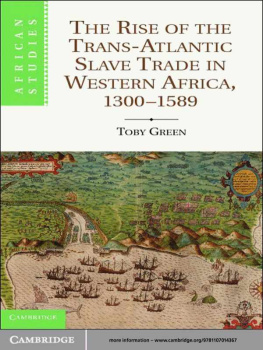
From 1550 to colonial partition in the mid-1880s, trade was key to Afro-European relations on the western Slave Coast (the coastal areas of modern Togo and parts of what are now Ghana and Benin). This book looks at the commercial relations of two states which played a crucial role in the Atlantic slave trade as well as the trade in ivory and agricultural produce: Hula, known to European traders as Grand Popo (now in Benin) and Ge, known as Little Popo (now in Togo). Situated between the Gold Coast to the west and the eastern Slave Coast to the east, this region was an important supplier of provisions for Europeans and the enslaved Africans they purchased. Also, due to its position in the lagoon system, it facilitated communication along the coast between the trading companies headquarters on the western Gold Coast and their factories on the eastern Slave Coast, particularly at Ouidah, the Slave Coasts major slave port. In the 19th century, when the trade at more established ports was disrupted by the men-of-war of the British anti-slave trade squadron, the western Slave Coast became a hot-spot of illegal slave trading.
Providing a detailed reconstruction of political and commercial developments in the western Slave coast, including the transition from the slave trade to legitimate commerce, this book also reveals the regions position in the wider trans-Atlantic trade network and how cross-cultural partnerships were negotiated; the trades impact on African coastal middlemen communities; and the relative importance of local and global factors for the history of a region or community.
Silke Strickrodt is Research Fellow in Colonial History, German Historical Institute London. She is co-editor (with Robin Law and Suzanne Schwarz) of Commercial Agriculture, the Slave Trade and Slavery in Atlantic Africa (James Currey, 2013).
Required reading for anyone with an interest in the history of the region, as well as a valuable contribution to the history of West Africa and the Atlantic world in general. AFRICAN AFFAIRS.
This book is a masterpiece of historical research, critical analysis, and writing. SLAVERY & ABOLITION.
By providing the first extended analysis of Afro-European trade in the western Slave Coast, Strickrodt has helped to fill a much-needed void in our knowledge of the subject. H-ASIA.
Impressively researched and very readable study of the Western Slave Coast. AFRICA.
Strickrodt is a meticulous scholar.... She has written an account that is very valuable not only for the history of the peoples studied, but also for understanding the diverse ways the slave trade shaped those who participated in it. AMERICAN HISTORICAL REVIEW.
The work provides a thorough narrative of the events of the western Slave Coast that expertly connects internal and external causes of change. Recommended. CHOICE.
The Economics of Ethnic Conflict:
The Case of Burkina Faso
Andreas Dafinger
Commercial Agriculture, the Slave Trade
& Slavery in Atlantic Africa
Edited by Robin Law, Suzanne Schwarz
& Silke Strickrodt
Afro-European Trade in the Atlantic World:
The Western Slave Coast c. 1550c. 1885
Silke Strickrodt
The Politics of Peacemaking in Africa:
Non-State Actors Role in the Liberian Civil War
Babatunde Tolu Afolabi
Sects & Social Disorder:
Muslim Identities & Conflict in Northern Nigeria
Edited by Abdul Raufu Mustapha
*Creed & Grievance:
Muslim-Christian Relations & Conflict Resolution in Northern Nigeria
Edited by Abdul Raufu Mustapha & David Ehrhardt
*forthcoming

To the memory of Lutz Wiederhold
(19632012)
Contents
Acknowledgements
This book has been a long time in the making. It derives from a PhD thesis submitted to the Department of History of the University of Stirling in 2002. Following completion, the thesis was left to rest for several years, while I was engaged in other projects. It was then rewritten, cut down in some parts and extended in others, with new material and ideas integrated. In producing first the thesis and then the book I have profited from the work, advice and support of many people. I want to use this opportunity to thank them.
Before all others, my thanks are due to Robin Law and Adam Jones, two distinguished historians of West Africa whom it has been my great privilege to work with. Robin Law has supervised the PhD thesis and advised on its transformation into a book. Adam Jones, with whom I did my undergraduate studies, was a constant source of encouragement and information. Their experience, knowledge and friendship have been indispensable to the production of the book, and my scholarly development more generally.


